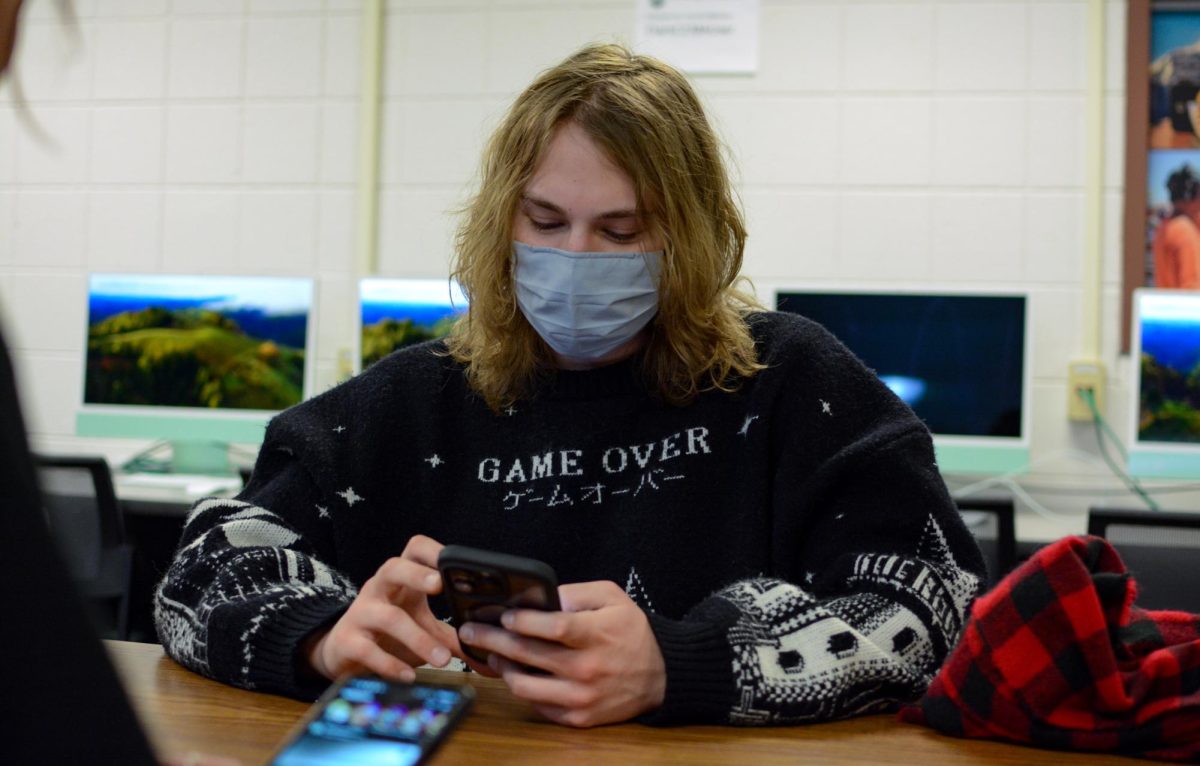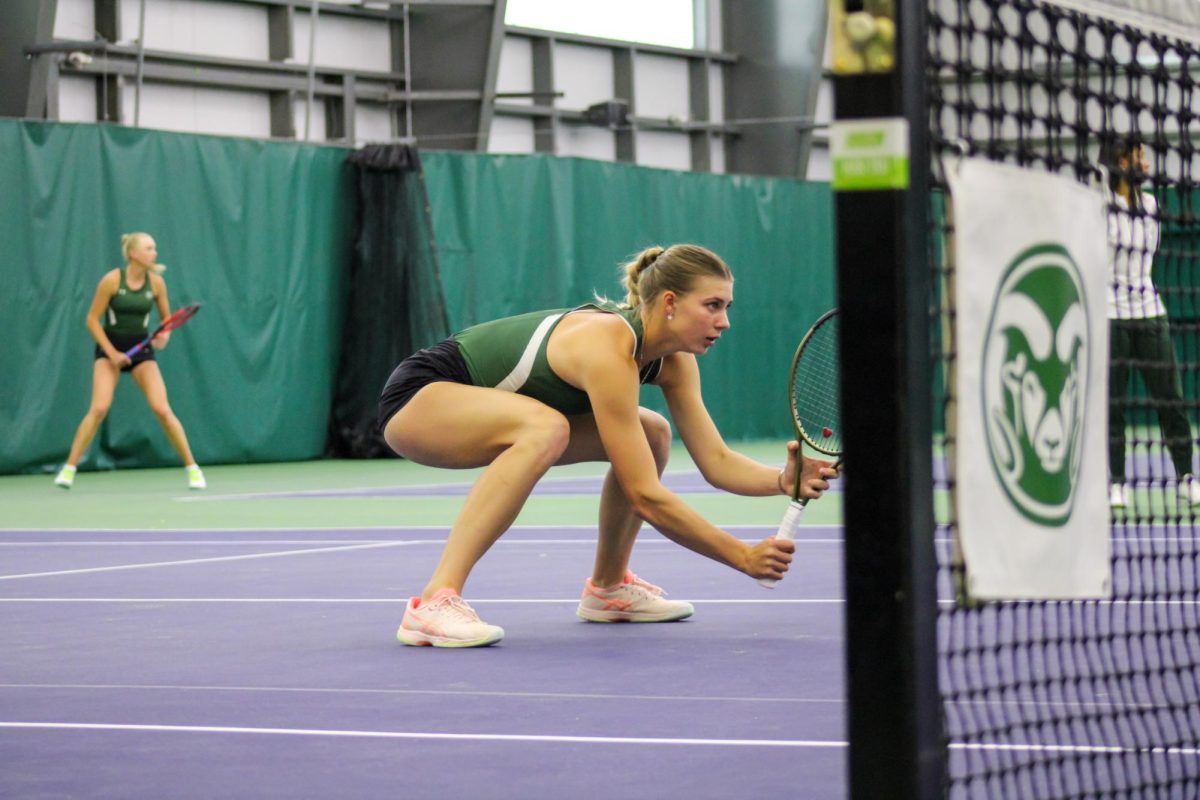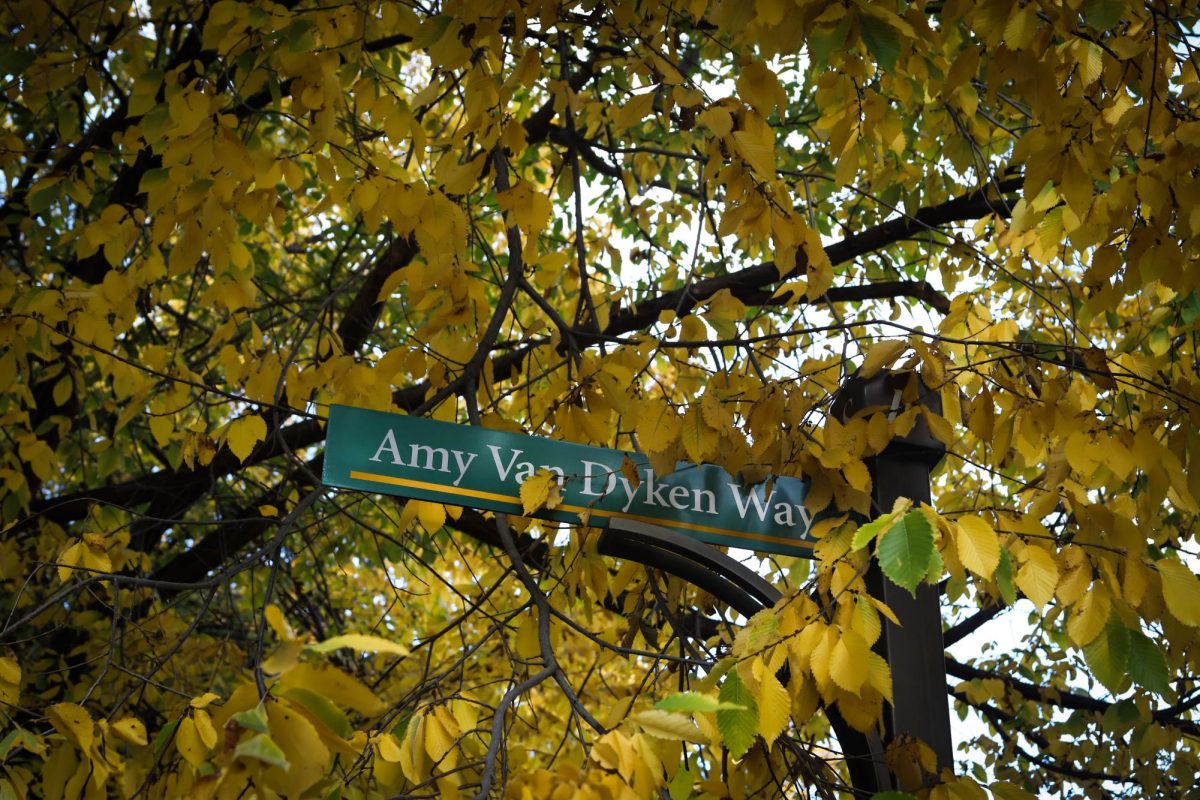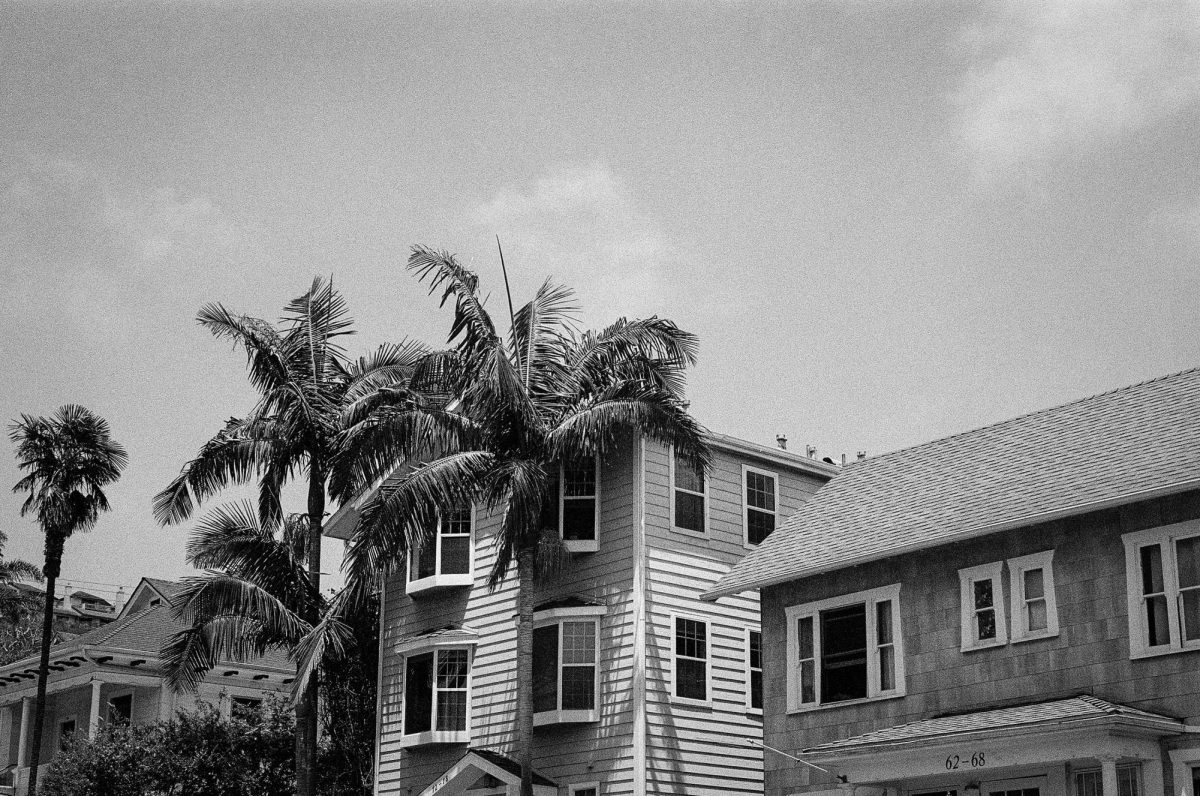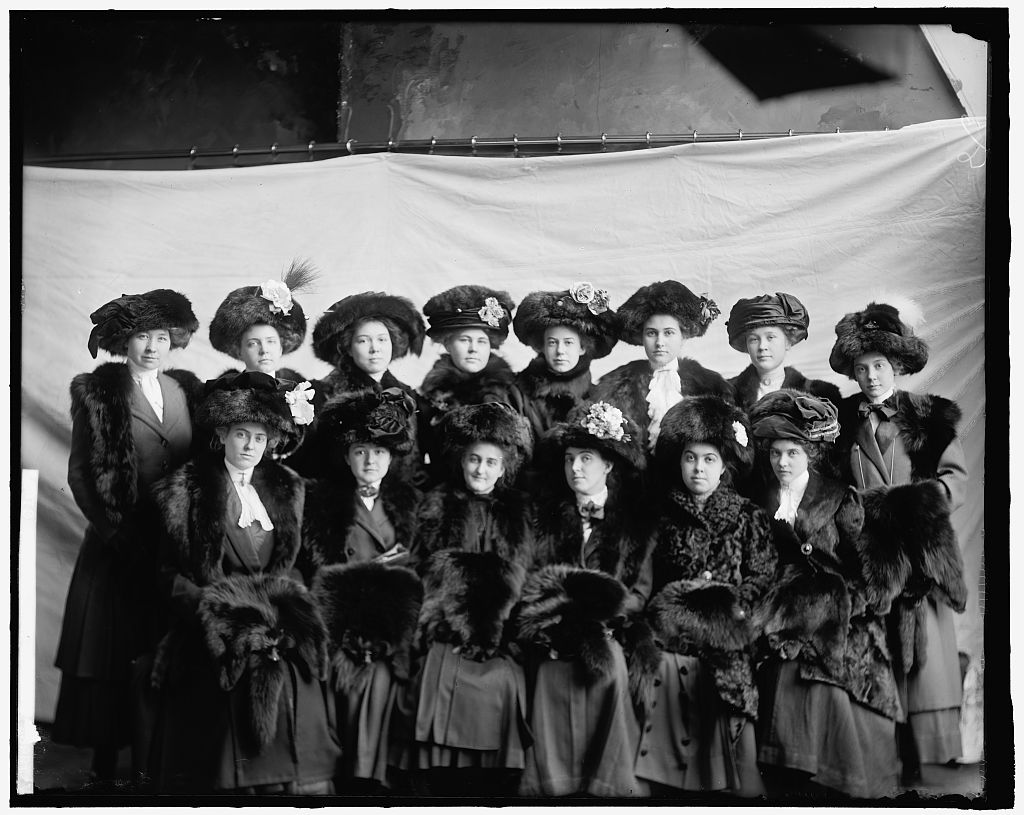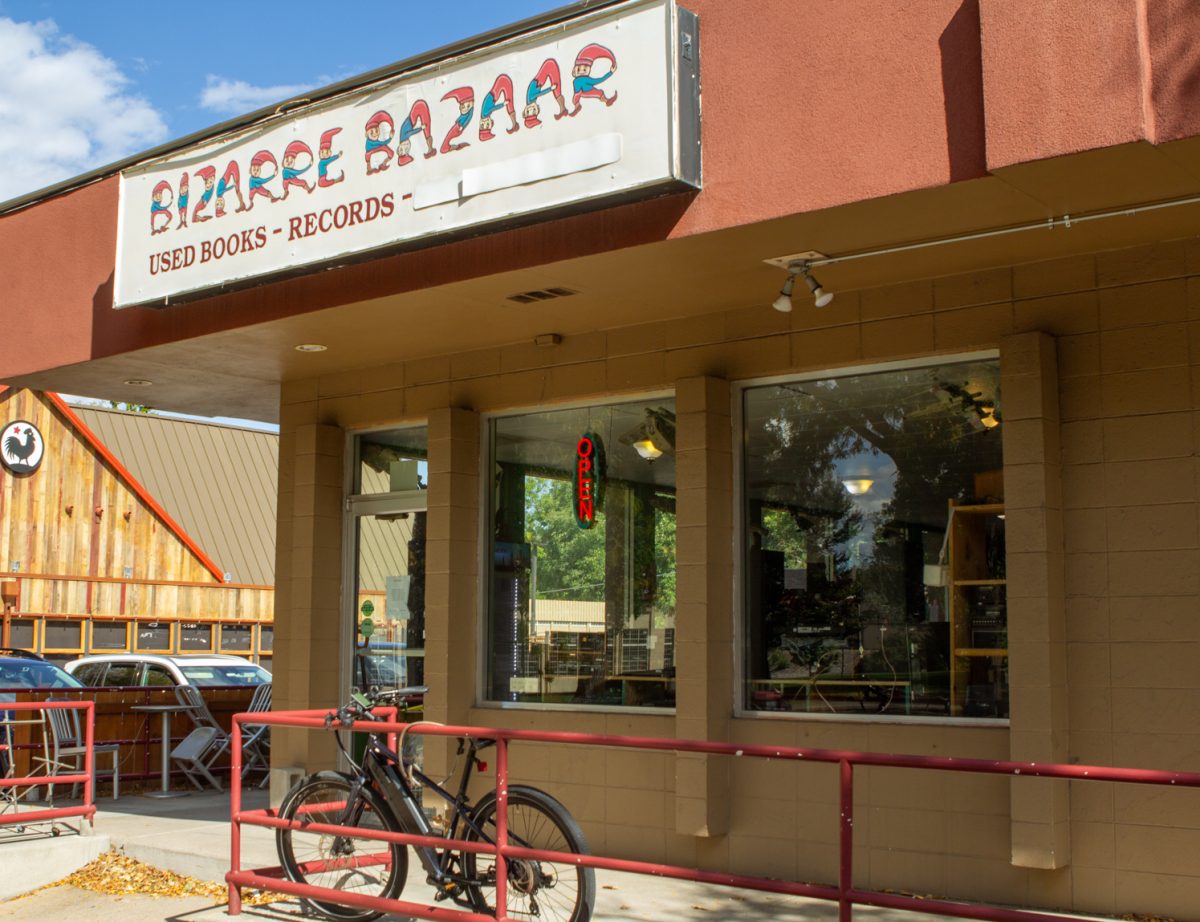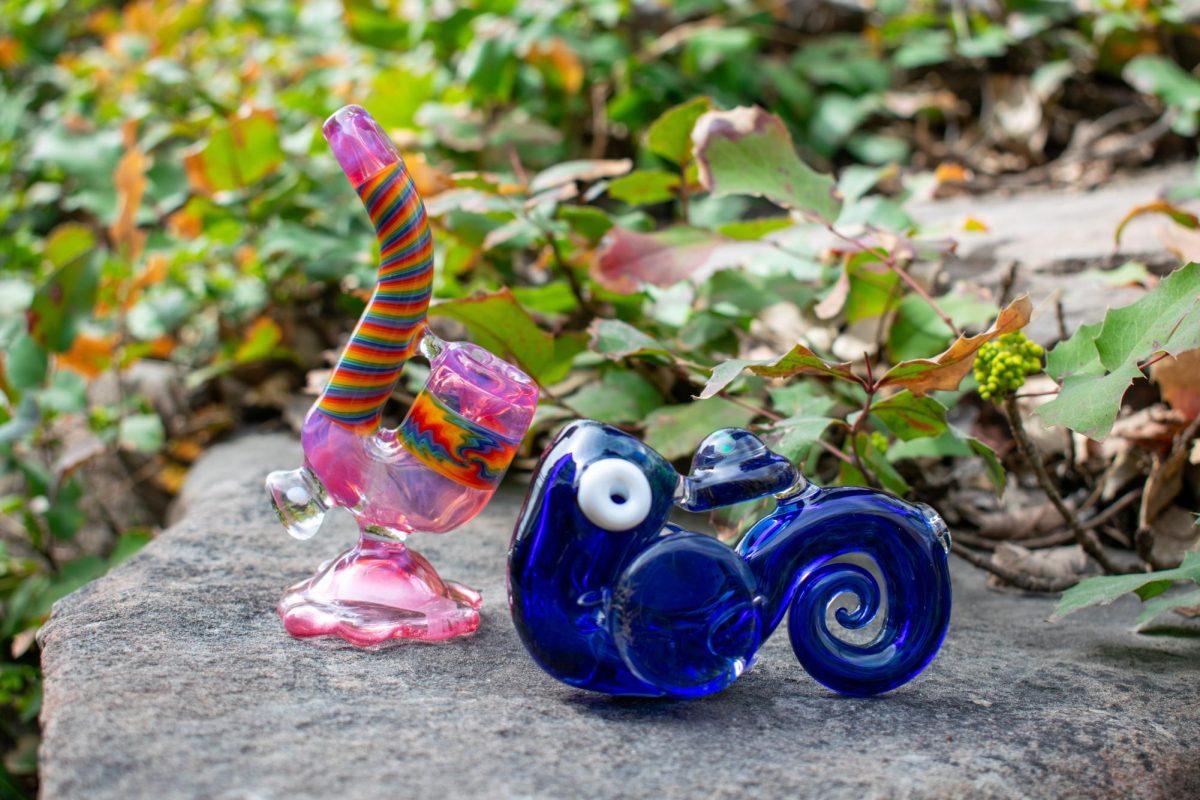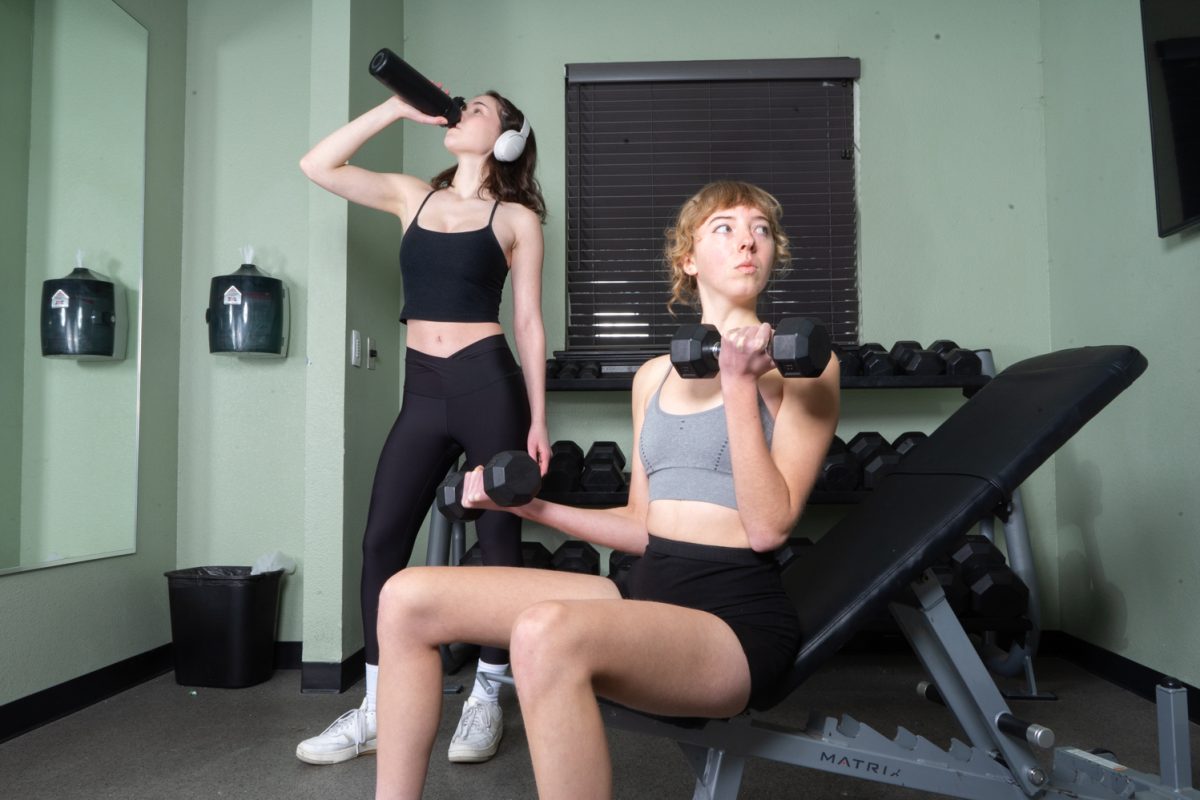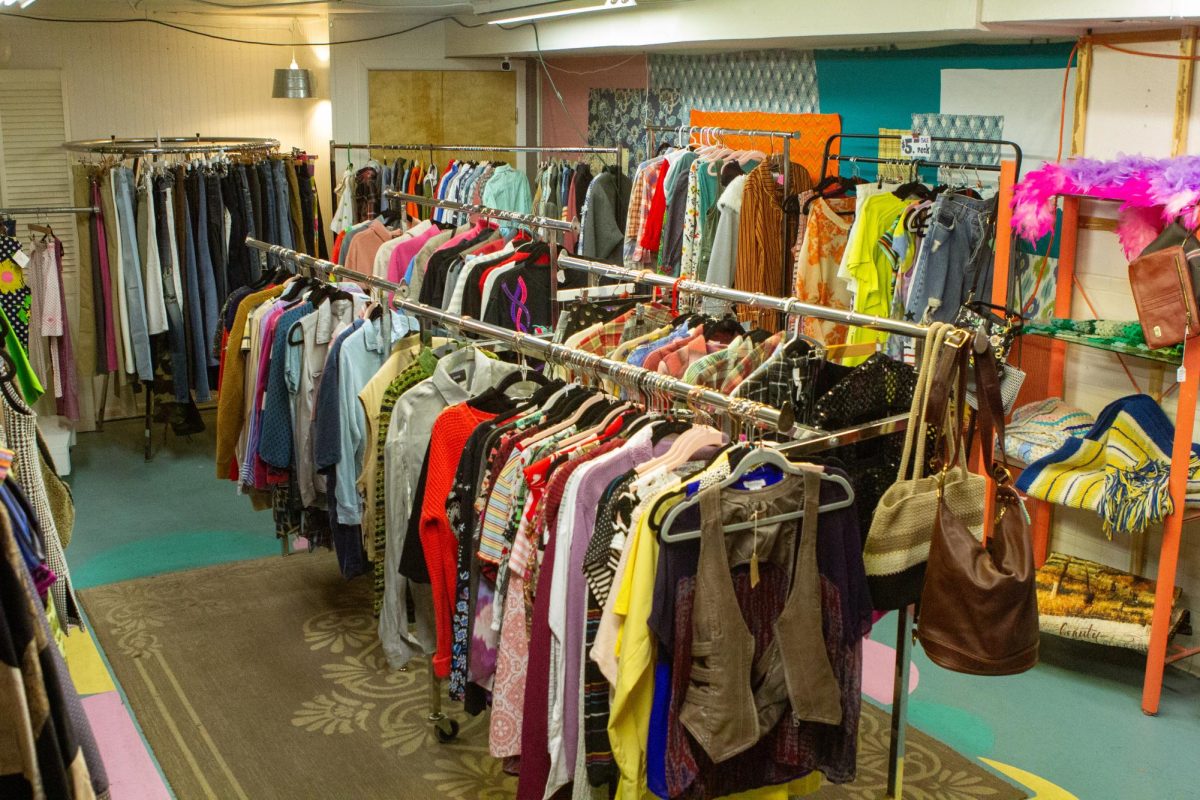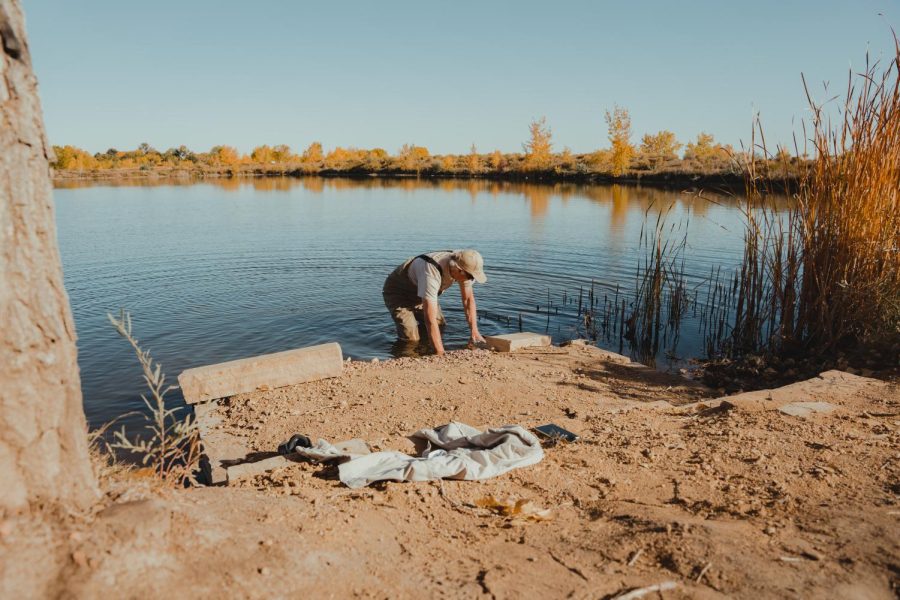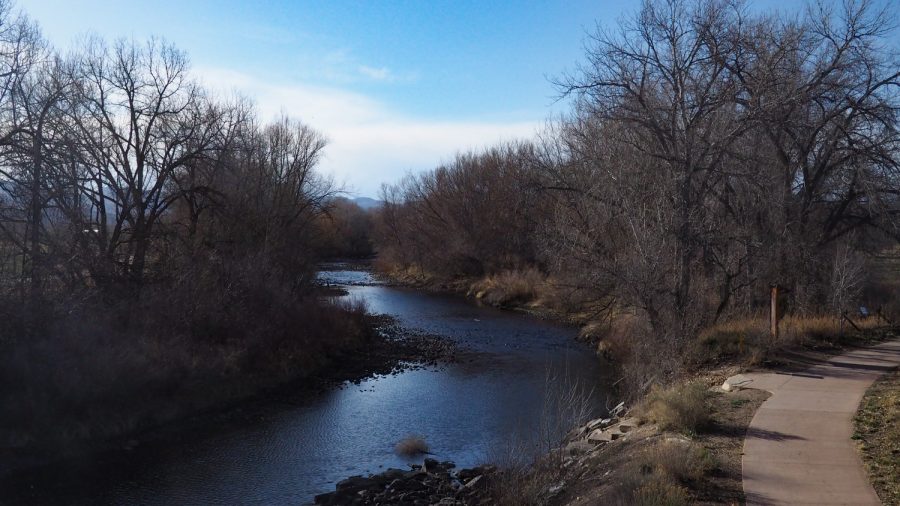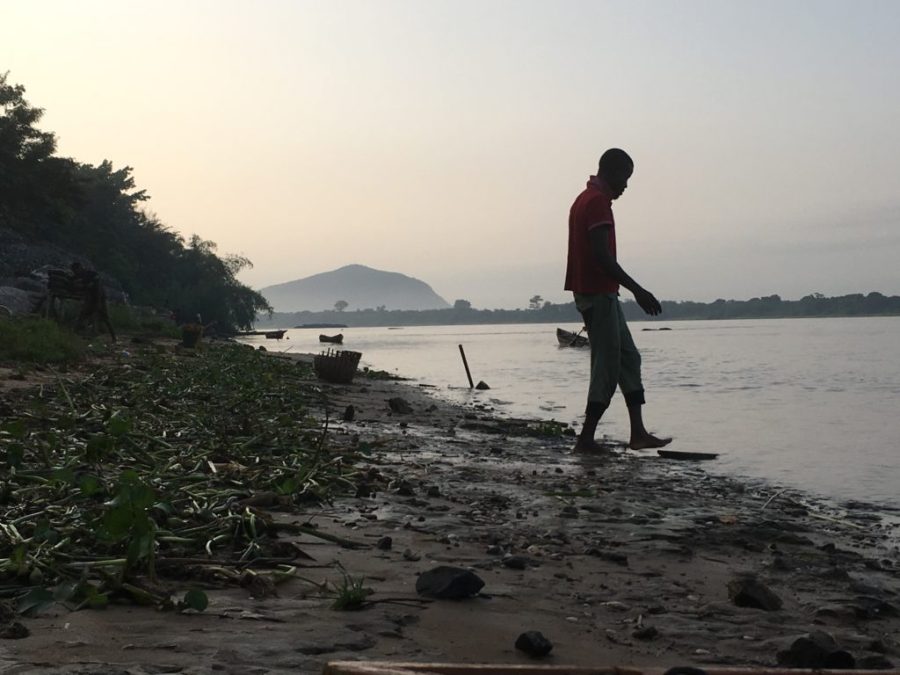If you ever use a squat toilet in a rural village, I highly recommend you cuff your pants and watch your step. If a door is ajar, still knock before attempting to enter because an older woman may be occupying the stall and she may become very upset with you for trying to intrude. Oh, and hold your breath, too. That is perhaps the most important part.
As I balanced on two flat rocks placed on either side of a large hole, reading scraps of Ghanaian newsprint scattered across the ground, I thought to myself that this was exactly what I had expected from my homestay in Torgome village – a community shrouded in poverty but blessed with one another, surrounded by goats and chickens and cultural crafts.
Then, I accidentally sniffed. It was time to leave.

My host was waiting near the edge of the dirt path, which was not a path so much as a cleared continuation of dirt.
“Let’s go to the house now,” he said and we began to amble past dilapidated brick buildings and small plots of crops.
I first met Samuel two hours after disembarking our god-awful tourist bus, a massive, red beast that proudly bore the letters VIP. I worried that this tacky arrival would color the village’s perception of us. We were, after all, a group of Americans here to visit for just 24 hours before riding our air-conditioned beast back to safety.
Our trip guide, Kennedy, said, “It’s okay to take pictures. Usually, in Ghana, you need to ask everyone in the picture first, but this village is used to visitors and doesn’t mind.”
But it still did not feel quite right shaking elders’ hands with a camera around my neck, so I at least shifted it sideways to rest on my hip. I refrained from taking too many photos or videos during the welcome dance performance and prayer.
When we received our local names, a chunky, beaded bracelet was tied on our left wrist. As I learned my new identity, Yaa Akorfa, which means born on Thursday-comfort, a smiling woman wrapped in bright cloth began to raise my arm.

“Ay!” one of the elders behind us scolded loudly.
A bit startled, the woman quickly corrected her position, moving to the side so my fellow participants could capture a clear photo.
Once every Kat and Adam had been transformed to Beauty Queen and May God Go with You, our guide began to announce host family assignments.
The man who approached me donned a red and blue striped Ralph Lauren polo and jeans, which took me by surprise. I was unsure if this was yet another American accommodation or simply everyday attire.
“What is your name?” he asked.
“Lexi. Thank you for having us here.” I knew my smile was tinged with discomfort, I did not know exactly what to say or do.
“It’s good to meet you. I must go, but I will find you later,” Samuel said and then he was gone.
I spent the rest of the afternoon looking for a man I couldn’t quite conjure a face of. The only detail I could recall of my host was his bright, brand name polo. It was a superficial thing to remember, but certainly useful for rapidly scanning a crowd.
Eventually, Samuel made good on his word. It was when I had finally stopped searching for him was when he appeared behind me.
After stopping by the public latrines, we began winding our way through the farming sector of the village. Samuel interspersed information about what we were passing with basic questions like where I was from and what my family was like.
“This is the church, I painted the whole thing myself.” The orange coat had begun to chip away at the corners and along the open doorframe.
“You’re a painter?” I asked.
“And carpenter. I build boats, nearly all of them in the village are mine,” Samuel said proudly as he removed a business card from his pocket.
“That’s quite impressive.” I looked down at the card. Samuel Ahenunya, CEO, had two phone numbers and a Gmail printed across clip art of overexcited white men holding tools.
“We will go see my boats at the riverside later,” he said.
Samuel slowed his pace and turned into a cluster of buildings on our left.
“This is your home?” I asked.
“Yes.” A cluster of robin’s egg blue buildings framed a large, square courtyard. A group of different ages, presumably Samuel’s family, sat on an odd juxtaposition of plastic yard chairs and worn wooden benches arranged haphazardly across the main porch. We walked over and I smiled warmly.
“Welcome! I’m Emmanuela.” A beautiful baby bound to her back blinked up at me.
“Thank you. What is her name?” I asked.
“Lorina.”

Once I had met the entire clan, Emmanuela urged, “Sit, please sit.” One of the children vacated a plastic chair for me. During my visit to Torgome, I was always invited to sit, a sign of respect for visitors.
“What is your local name?” the eldest woman asked, leaning forward on her knees.
I did not remember and began to panic. Why did I not write it down on my phone? We had received a pot painted with our names, too. I take pictures of everything else, why couldn’t I be bothered to snap a shot of the name I would be using for the entire duration of my stay in Torgome?
I did remember born on Thursday, so I delivered, “Yaa,” before trailing off. It started with an A, right? “Akolfa?” I ventured. The looks on my new family’s faces said no, it was definitely not Akolfa.
“What did the second part mean?” Samuel asked, hoping to resolve the situation.
“Comfort.”
“Ah, Akorfa.” I attempted to mimic his pronunciation, hoping I had not disappointed his mother too poorly.
She said something in the local language, maintaining eye contact all the while. When she finished speaking, I turned to Samuel, my translator.
“She says you are her ninth child. You are a part of our family.”
I smiled, laughing a bit because to make such a comparison when just meeting someone is unheard of in our culture and offered my sincere gratitude.
We were all sitting together on the porch, the conversation still flowing in a tongue I did not understand when Samuel pointed to a blown-up photo mounted on the wall in front of us.
“My father passed away just before you came,” he said.
“This is him?” August 23 was carved into the wall next to the picture.
“Yes. He was an evangelist. We are all missing him very much.”
One of the sisters looked up at the memorial photos and then back down to the ground. I reached for her hand and squeezed.
“I am the only man left,” Samuel said, more aloud for himself than as a comment to me. “Speaking of, I have a meeting I must attend. Will you be alright?”
I assured him, yes, of course, I would be fine here with the family. The sisters continued to chat when two suddenly broke from the huddle and descended upon me. One loosened my hair from its knot and another began to comb roughly with her fingers. Then each started to tug from a separate side of my head.
Absent my translator, I was unsure of what was happening. I did not want to offend this incredibly kind family, so I sat silently and tried my hardest to keep from grimacing.
How the braids met at the left nape of my neck, I am not quite sure, but the women pinned their creation atop my head with my original butterfly clip.
I had not seen the mother leave, but she now stood before me holding a strand of beautiful yellow, painted beads and bowed before placing them around my neck. Wasn’t I supposed to defer to her as my elder? I wondered, not sure how to react. A sister wrapped printed blue cloth around my waist and the mother took my hand.
She led me through a door to our right and gestured towards a full-length mirror positioned between two mattresses on the ground.
Oh, she wanted me to look at their gifts! I beamed my appreciation outward and she placed her hand on my shoulder.
This was the room I returned to at the end of the night, after dinner, dancing, and stories around the fire with the other host families in the village’s center.
I had mentally prepared to sleep on woven mats with my family all together in one room, so a private accommodation was an unexpected luxury.
Another girl from the program was to come sleep on the other open mattress. So while waiting, Samuel and I spent an hour or so talking about his aspirations to leave the village.
When my roommate for the evening, Grace, arrived, we both dressed for bed in the glow of a soft, blue bulb and switched on our rotating fan.
That night was the worst sleep I have ever gotten. Each hour, I awoke to a new sound: roosters crowing hours earlier than I had ever heard before, goats knocking about the compound in search of crumbs, the metal clanking of drunken villagers slowly making their way home. When I heard the family rise and begin to sweep the compound at 5:00 a.m., I peeked my head out to inspect the commotion.
“No, not time,” the mother said, shaking her head and gesturing back towards the bedroom door.
I changed my clothes and combed my hair before lying back down, using my backpack as a pillow.
Samuel knocked an hour later, calling out, “can we go to the riverside now? I want to show you how I catch the lobster.”
After helping me down the rocky passage and walking a short way down the shoreline, Samuel pointed to one of the canoes. The phrase is timing had been painted along the side.
“My father used to say this all the time before he died,” he said.
Samuel rowed us out on the boat and showed me how to reel in the frond-woven traps. He insisted I compare the different size of lobsters in my hands, repeatedly asking, “Have you seen it?”
When we returned, our time had nearly drawn to a close. His wife insisted on cooking the small prawns for Grace and I to try and even packed them into Tupperware as Samuel insisted they we might want to snack on our journey home.

I knew lobster would not exactly keep well during the trek our guide had planned. During breakfast, Samuel showed me which parts of the shell to peel away. The village had prepared a special meal they thought our American group might be comfortable eating. The table of other participants I sat with loved the sweet bread and plantains. I offered them a lobster but was quickly met with, “No thank you. I don’t eat things like that before 11 or 12.”
I shrugged and popped one into my mouth, leaving the portion of the shell Samuel had said was okay. The table met the audible crunch with a very skeptical, “wow, you’re really going all in, huh?”
“They’re good, Samuel,” I assured him, reveling in the brine of fresh seafood.
After we had finished eating, our guide herded the group towards the bus. Samuel pulled me away and pressed another chunky bracelet into my palm.
“This is for your father, for raising you this way,” he said, his voice taking on a serious tone. “And this is my WhatsApp. Please help me, in any way you can. I know whites like you can bring us to America.”
My heart ached. “I will have trouble communicating until I return from my trip, but I will write when I can. As I study back home, I may connect with organizations or learn more about how I can help.” I did want to help, but I also did not want to make any promises that I could not keep.
Samuel seemed to feel my dilemma. “It’s okay,” he said. “Is timing.”
Interested in experiencing village life yourself? Semester at Sea is the place to be.


